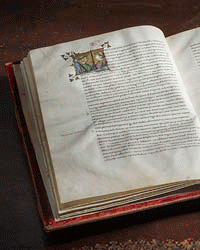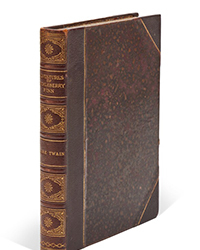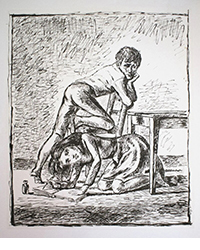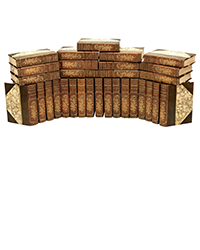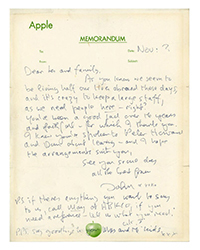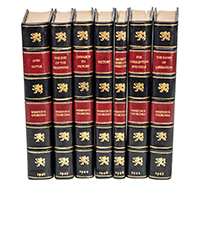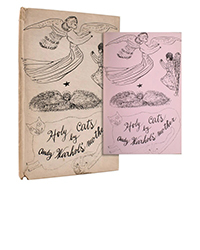The AI Chatbot (think ChatGPT) has suddenly become the go-to source for inquiries on the internet. A year ago, if you searched Google for something you were content to get a bunch of links where you could research a question yourself. No longer. Now you want Google to answer your question for you. We aren't going back.
Of course, to answer your questions, Google must be very smart, or at least, very knowledgeable. It does that in part by learning everything on the internet, but even that isn't enough, particularly if you want accuracy. So, Google/chatbots read a lot of books. More than you do. Millions of them. And remember every word!
Where do the chatbots get all these books? Two ways, legally and illegally. The legal way is to buy the books or obtain them in some other such manner. The illegal way is to, in effect, steal them. Anthropic, maker of "Claude," used both, as do most chatbots.
Meanwhile, while all this big business is taking place, someone is being completely left out of the equation - the authors. They are getting nothing and they are not happy about it. Understandably, they want to be paid. They sued.
The authors achieved a partial victory. That's where the headline number - a $1.5 billion settlement - comes from (see settlement article here). That's what made the headlines people read, but the lost part of the judgment, which long-term means much more, is the most significant. More about that later.
This suit was brought by three authors but it was a class action, on behalf of all authors. That class is expected to be around 500,000. The lawyers and Anthropic negotiated to the $1.5 billion settlement. This would represent the largest judgment or settlement ever in a copyright infringement case. The authors' attorneys expressed their enthusiasm; Anthropic said little. The settlement was brought to the judge who said... Whoa. Slow down. U.S. District Court Judge William Alsup was not pleased with the settlement. Is $1.5 billion a ridiculous amount of money? Apparently. Too much? No. The opposite. Judge Alsup said that way too often class members in these cases "get the shaft," and he feared this could happen to the authors.
The proposed settlement would provide roughly $3,000 each to the authors. But, the judge was concerned about "hangers on." Unsaid, but this could primarily be the lawyers. They will expect to be rewarded handsomely for this record settlement. Add to that, not only are there traditional legal fees, but compiling a list of eligible beneficiaries and getting payments to them will also be costly. And then, there are the publishers. Many of them have rights in the books. An understanding apparently was achieved whereby the proceeds would be evenly split between the authors and publishers. Calculate all this and I think it would be a miracle if the authors got even $1,000.
Some estimates were made that the authors might be entitled to as much as $150,000 per book. They would like that, but could Anthropic come up with $75 billion? If they went bankrupt, the authors might get nothing. Anthropic is estimated as having a value of $183 billion, but that is based on funding raised. How much is left is unclear. Perhaps they could get a number in that area if forced through a bankruptcy sale. Certainly, they should be able to get more than $1.5 billion. Having just raised another $13 billion, the investors would undoubtedly be willing to put up more than another $1.5 billion to keep that investment from becoming worthless. The Judge may be on to something here, and the authors may end up with some more serious rewards by the time this is all finished.
This still leaves the half of the lawsuit the authors lost in place, and once all the claims for using pirated books for AI training are adjudicated, it means authors will get almost nothing from the new books they write. The court ruled that legally obtained books are subject to the "Fair Use" exception. That's what allows you to write an article or book report without paying the author. The AI creator need buy only one copy of the book. The author's share of the price of one book is insignificant, and then the AI creator has unlimited free use of the author's work. If they buy a used copy, the author won't even get pennies. They become unpaid content creators for the AI companies.
The "Fair Use" exception, appropriate for book reports and other places with limited readership, may not be appropriate for the AI chatbot era. These AI searches are accessible to countless millions of people, something never envisioned for "fair use." Add to that, "fair use" users usually take just one or two items from another's work to address a subject. Chatbots can take parts from all over the book to address many different questions. That level of unpaid usage seems to be something more than "fair." This looks like something for legislators to take a look at. Copying information from the internet, where posters understand there will be free access, is one thing, but authors have not consented to their work being made available free to the public. Perhaps legislation limiting the use of "Fair Use" in this instance, or mandating a fee for using authors' work in a chatbot, are in order.
One final point: The decisions of a district court can be appealed, first to the Court of Appeals, and then to the Supreme Court. Either side can appeal the part of the judgment unfavorable to their interests.


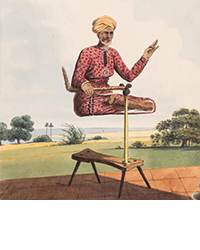
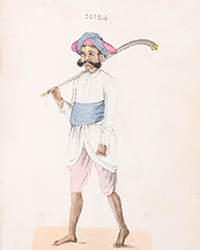
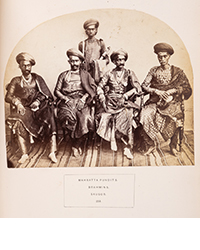
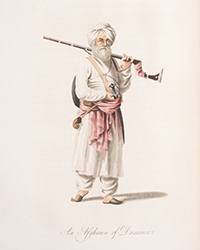
![<b>Forum, Feb. 19:</b> Lot 57<br>[Album and Treatise on Hinduism], manuscript treatise on Hinduism in French, 31 watercolours of Hindu deities, Pondicherry, 1865. £3,000-4,000 <b>Forum, Feb. 19:</b> Lot 57<br>[Album and Treatise on Hinduism], manuscript treatise on Hinduism in French, 31 watercolours of Hindu deities, Pondicherry, 1865. £3,000-4,000](https://ae-files.s3.amazonaws.com/AdvertisementPhotos/f70b3790-9b4a-4990-b402-f0322021c0de.jpg)
![<b>Forum, Feb. 19:</b> Lot 62 Allan (Capt. Alexander). <i>Views in the Mysore Country,</i>
[1794]. £2,000-3,000 <b>Forum, Feb. 19:</b> Lot 62 Allan (Capt. Alexander). <i>Views in the Mysore Country,</i>
[1794]. £2,000-3,000](https://ae-files.s3.amazonaws.com/AdvertisementPhotos/ad2cf7b4-4d93-4231-a956-b440583b39b3.jpg)
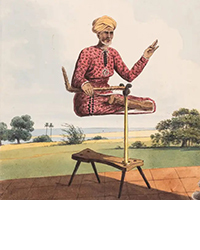
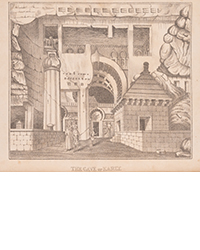
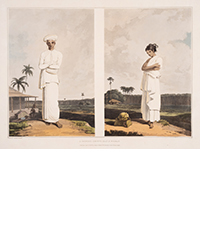
![<b>Forum, Feb. 19:</b> Lot 123<br>D'Oyly (Charles). <i>Behar Amateur Lithographic Scrap Book,</i> lithographed throughout with title and 55 plates mounted on 43 paper leaves, [Patna], [1828]. £3,000-5,000 <b>Forum, Feb. 19:</b> Lot 123<br>D'Oyly (Charles). <i>Behar Amateur Lithographic Scrap Book,</i> lithographed throughout with title and 55 plates mounted on 43 paper leaves, [Patna], [1828]. £3,000-5,000](https://ae-files.s3.amazonaws.com/AdvertisementPhotos/5651043b-3c0d-4e2c-931f-72133bda9b36.jpg)
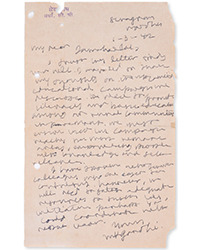
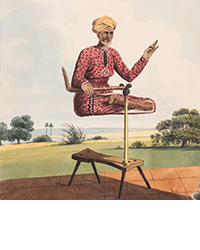
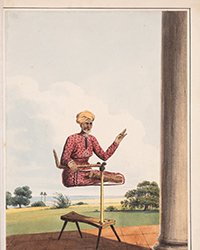
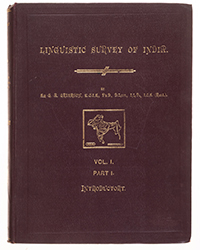
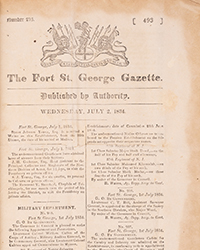
![<b>Forum, Feb. 19:</b> Lot 205<br>Marshall (Sir John) and Alfred Foucher. <i>The Monuments of Sanchi,</i> 3 vol., first edition, 141 plates, most photogravure, [Calcutta], [1940]. £3,000-4,000 <b>Forum, Feb. 19:</b> Lot 205<br>Marshall (Sir John) and Alfred Foucher. <i>The Monuments of Sanchi,</i> 3 vol., first edition, 141 plates, most photogravure, [Calcutta], [1940]. £3,000-4,000](https://ae-files.s3.amazonaws.com/AdvertisementPhotos/8c8244b7-4573-44d3-9c70-e0d3a3ed3cc4.jpg)

![<b>Il Ponte, Feb. 25-26:</b> HAMILTON, Sir William (1730-1803) - Campi Phlegraei. Napoli: [Pietro Fabris], 1776, 1779. € 30.000 - 50.000 <b>Il Ponte, Feb. 25-26:</b> HAMILTON, Sir William (1730-1803) - Campi Phlegraei. Napoli: [Pietro Fabris], 1776, 1779. € 30.000 - 50.000](https://ae-files.s3.amazonaws.com/AdvertisementPhotos/0372eeb9-97e1-47b2-baca-b3287d4704ee.jpg)
![<b>Il Ponte, Feb. 25-26:</b> [MORTIER] - BLAEU, Joannes (1596-1673) - Het Nieuw Stede Boek van Italie. Amsterdam: Pieter Mortier, 1704-1705. € 15.000 - 25.000 <b>Il Ponte, Feb. 25-26:</b> [MORTIER] - BLAEU, Joannes (1596-1673) - Het Nieuw Stede Boek van Italie. Amsterdam: Pieter Mortier, 1704-1705. € 15.000 - 25.000](https://ae-files.s3.amazonaws.com/AdvertisementPhotos/8f9ce440-b420-4407-8293-eb8e1b38ca19.jpg)
![<b>Il Ponte, Feb. 25-26:</b> TULLIO D'ALBISOLA (1899-1971) - Bruno MUNARI (1907-1998) - L'Anguria lirica (lungo poema passionale). Roma e Savona: Edizioni Futuriste di Poesia, senza data [ma 1933?]. € 20.000 - 30.000 <b>Il Ponte, Feb. 25-26:</b> TULLIO D'ALBISOLA (1899-1971) - Bruno MUNARI (1907-1998) - L'Anguria lirica (lungo poema passionale). Roma e Savona: Edizioni Futuriste di Poesia, senza data [ma 1933?]. € 20.000 - 30.000](https://ae-files.s3.amazonaws.com/AdvertisementPhotos/71bb9667-5d66-4aa8-96a2-9880c74a7a26.jpg)
